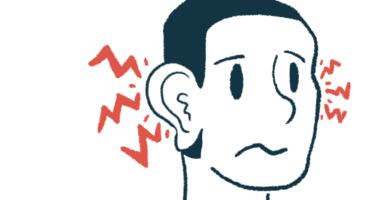Anavex 2-73 shows promise for Rett children but misses trial goal
Improvements with oral therapy not much better than those seen with placebo

Treatment with Anavex 2-73 (blarcamesine) led to improvements in behavior among children with Rett syndrome in a Phase 2/3 clinical trial — but the extent of these gains was not significantly different from improvements seen in patients given a placebo.
Those are the top-line findings of the EXCELLENCE trial (NCT04304482) — the first to assess Anavex 2-73 in Rett children — conducted by the therapy’s developer Anavex Life Sciences. The trial failed to meet its goal.
“We believe that a high placebo response may have masked the therapeutic effect of this innovative orally available molecule,” Walter E. Kaufmann, MD, chief scientific officer at Anavex, said in a company press release.
Such “high placebo responses are well documented especially in pediatric clinical studies,” Kaufmann said, adding that Anavex plans to “further assess the collective results and discuss with the regulatory authorities next steps.”
EXCELLENCE is 1st trial to test Anavex 2-73 in children with Rett
Anavex 2-73 is an experimental oral therapy designed to help normalize brain signaling in Rett syndrome patients. It works by activating a brain protein called sigma-1 receptor (SIGMAR1).
Data from a Phase 2 clinical trial (NCT03758924) involving adults with Rett showed the therapy led to behavioral improvements — and that these benefits were sustained for at least a few months in an extension study.
Findings from a later Phase 3 study called AVATAR (NCT03941444) also indicated that Anavex 2-73 could help ease Rett syndrome severity in women with the disease. Anavex recently announced data indicating that the therapy corrected gene activity in that trial.
All of these studies were conducted in adults. To assess the treatment’s safety and efficacy in children with Rett, Anavex sponsored EXCELLENCE, which enrolled 92 girls with Rett syndrome, ages 5 to 17. Two-thirds of the girls were given Anavex 2-73 for 12 weeks, or about three months, while the rest received a placebo.
The study’s main goal was to assess the impact of treatment on scores on the Rett Syndrome Behaviour Questionnaire (RSBQ), a standardized assessment of the severity of behavioral abnormalities common in Rett syndrome.
The results showed that, among girls given Anavex 2-73, average RSBQ scores improved by 12.93 points after 12 weeks. For patients given the placebo, the average improvement was 8.32 points.
The difference between the Anavex 2-73 group and the placebo group was not statistically significant, which basically means there’s a non-negligible possibility that the difference could be due to random chance, rather than the effects of the medication.
However, looking at RSBQ scores after just the first four weeks of the study, there was a statistically significant greater improvement with Anavex 2-73 than the placebo — a mean 10.32 versus 5.67 points improvement.
Trial’s failure may be due to ‘slight imbalance’ in a few factors, per Anavex
Another behavioral measure, the Anxiety, Depression, and Mood Scale, also tended to improve more with Anavex 2-73 than with the placebo. A clinician-rated measure, however, showed no meaningful difference between the two groups.
According to Anavex, the lack of statistical significance in the results may be due to some imbalances between the placebo and treatment groups prior to entering the study.
“Although data analysis is ongoing, the early conclusion is that the placebo rate could have been higher in the study due to a slight imbalance in disease severity at baseline, across the treatment arms [groups], and the 2 to 1 drug to placebo randomization ratio,” Kaufmann said.
Safety data from the EXCELLENCE study did not reveal any new concerns. Further, more than 90% of participants who completed the initial placebo-controlled study opted to continue into an open-label extension in which all will be treated with Anavex 2-73 for about a year.
Overall, the findings, which mirror data from earlier studies in adults, indicate that Rett families have generally had positive experiences with the experimental therapy, according to Anavex.
Although data analysis is ongoing, the early conclusion is that the placebo rate could have been higher in the study due to a slight imbalance in disease severity at baseline, across the treatment arms [groups], and the 2 to 1 drug to placebo randomization ratio.
“We believe that Anavex 2-73, as a new, potential convenient treatment option in the future, can contribute to patients and healthcare professionals by addressing unmet needs in the treatment of Rett syndrome,” said Christopher U. Missling, PhD, Anavex’s president and CEO.
“Based on these study results, we will continue to be committed to the Rett syndrome and rare disease community, given also the prior successful two placebo-controlled studies in adult patients with Rett syndrome,” Missling added.
To date, almost all of the pediatric patients who have completed the extension study have chosen to continue receiving Anavex 2-73 through a compassionate use program.
“We express our deep gratitude for the commitment of the study participants and their caregivers, whose dedication and generous participation in clinical trials made this research possible,” Missling said.
Besides Rett syndrome, Anavex 2-73 also is being tested for people with Alzheimer’s disease, Parkinson’s disease, and fragile X .syndrome.








